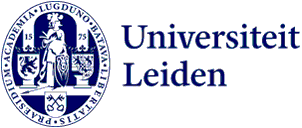University & Faculty Councils and Programme Committees
The university council and faculty councils are democratically elected co-participation bodies that represent both students and staff of the university and its faculties. Co-participation also takes place at departmental level through programme committees.
The University Council
The role of the university council is to critically observe and advise the Executive Board and, when applicable, to assist the board with important decisions. The powers of the University Council are laid down in the Higher Education and Research Act (WHW) and the University Council Regulations (both only available in Dutch).
Faculty Councils
Every faculty has a faculty council. After the university council, the faculty council is the second highest co-participation body within the university. Faculty councils consist of both staff and student members. Find out more under your faculty tab or in the organisational structure.
Programme Committees
Every programme has a programme committee. Within programme committees, lecturers and students come together to discuss the education provided by the programme. Programme committees provide both solicited and unsolicited advice to programme boards, faculty boards and faculty councils, concerning the quality of education, the course and examination regulations (OER) and educational facilities. If further information is available about your programme committee, this can be found under your programme tab.
Faculty Council
The Faculty Council has right of consent or right of prior consultations on a range of faculty matters, including teaching. It operates as the representative of the students and of the scientific and administrative staff with regard to significant decisions. The Faculty Council comprises nine staff members and nine student members, from different parties.
See for more information the Faculty Council website.
Co-participation, how does that work?
Who decides what your study programme looks like? Watch the video and learn! You can always approach our assessor in case of questions, complaints or suggestions – or if you want to get more involved in the faculty! Go to the committee database to find out who's in the committee of your study programme.
Due to the selected cookie settings, we cannot show this video here.
Watch the video on the original website orClick on the wheel icon to change preferred subtitle language!
Departmental Board
Each bachelor’s and each (research) master’s programme has a Departmental Board. The Departmental Board is responsible for the relevant teaching programme, i.e. for designing and implementing the teaching programme. The Board comprises a member of the academic staff as departmental chairman (bachelor’s) or programme coordinator (master’s), generally a professor, and a student from the department in question.
Contact the Departmental Board
Departmental Teaching Committee
The purpose of the Departmental Teaching Committee (OC) is safeguarding the quality of the teaching programmes. You are always free to contact the Departmental Teaching Committee with teaching-related questions or complaints. You can also play a role yourself by becoming a member of the OC. As a student member, you can exercise influence on all possible aspects of teaching within your department.
Contact the Departmental Teaching Committee
Board of Examiners
Each programme has a Board of Examiners. The Board of Examiners of your department is responsible for the effective organisation of the tests and examinations. You can find all information about the Board of Examiners of your programme on this page.
